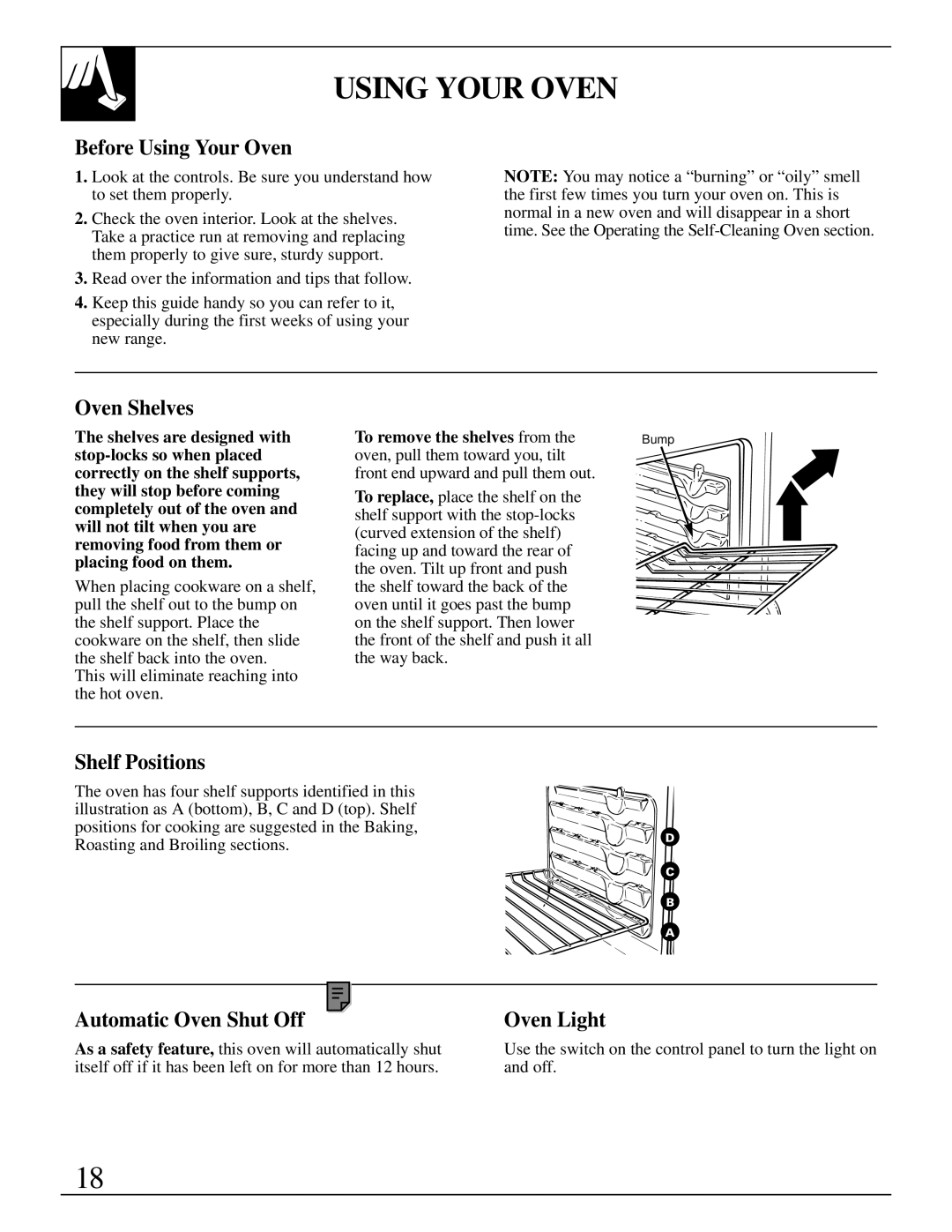
USING YOUR OVEN
Before Using Your Oven
1.Look at the controls. Be sure you understand how to set them properly.
2.Check the oven interior. Look at the shelves. Take a practice run at removing and replacing them properly to give sure, sturdy support.
3.Read over the information and tips that follow.
4.Keep this guide handy so you can refer to it, especially during the first weeks of using your new range.
NOTE: You may notice a “burning” or “oily” smell the first few times you turn your oven on. This is normal in a new oven and will disappear in a short time. See the Operating the
Oven Shelves
The shelves are designed with
When placing cookware on a shelf, pull the shelf out to the bump on the shelf support. Place the cookware on the shelf, then slide the shelf back into the oven.
This will eliminate reaching into the hot oven.
To remove the shelves from the oven, pull them toward you, tilt front end upward and pull them out.
To replace, place the shelf on the shelf support with the
Bump
Shelf Positions
The oven has four shelf supports identified in this illustration as A (bottom), B, C and D (top). Shelf positions for cooking are suggested in the Baking, Roasting and Broiling sections.
D
C
B
A
Automatic Oven Shut Off
As a safety feature, this oven will automatically shut itself off if it has been left on for more than 12 hours.
Oven Light
Use the switch on the control panel to turn the light on and off.
18
